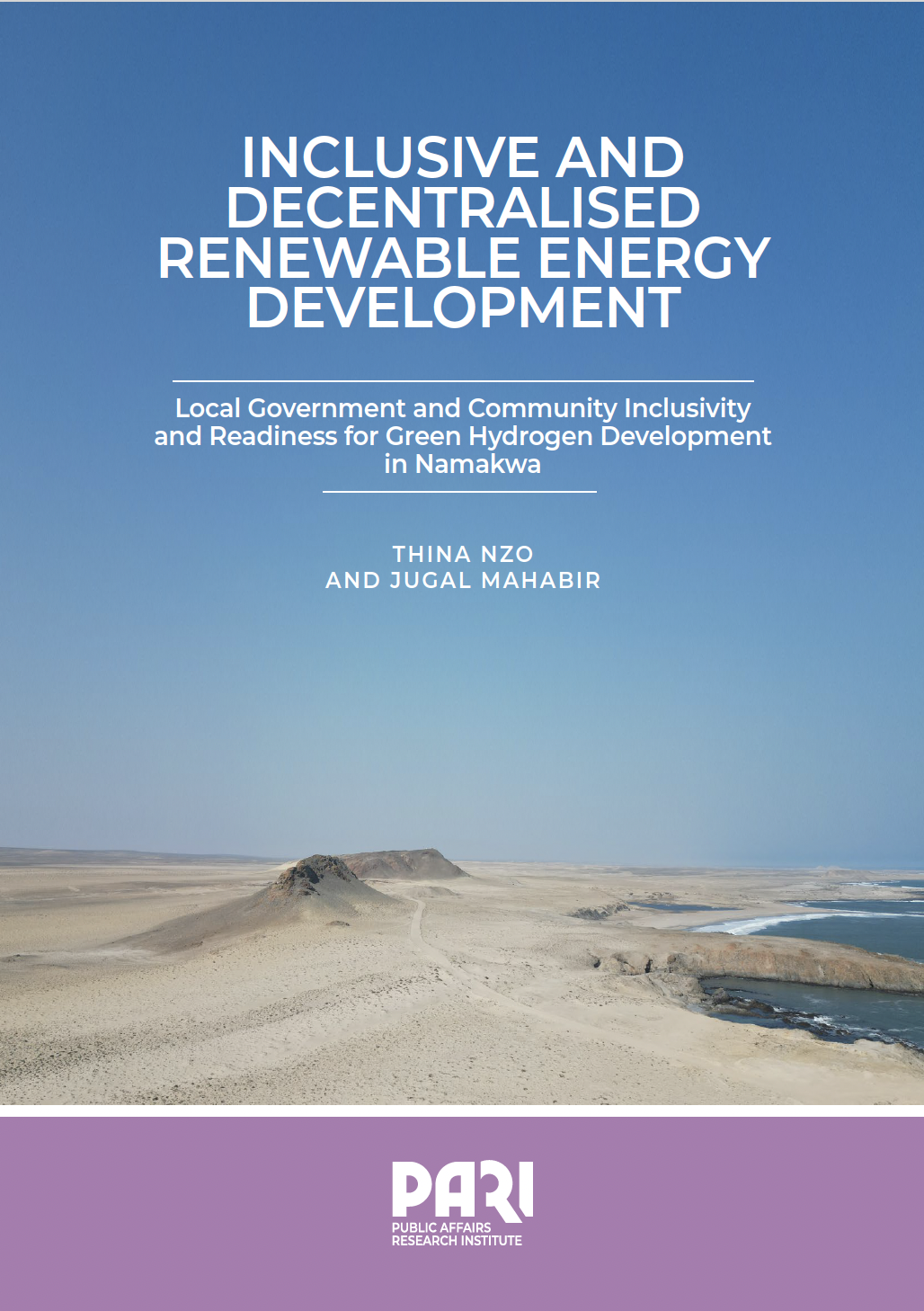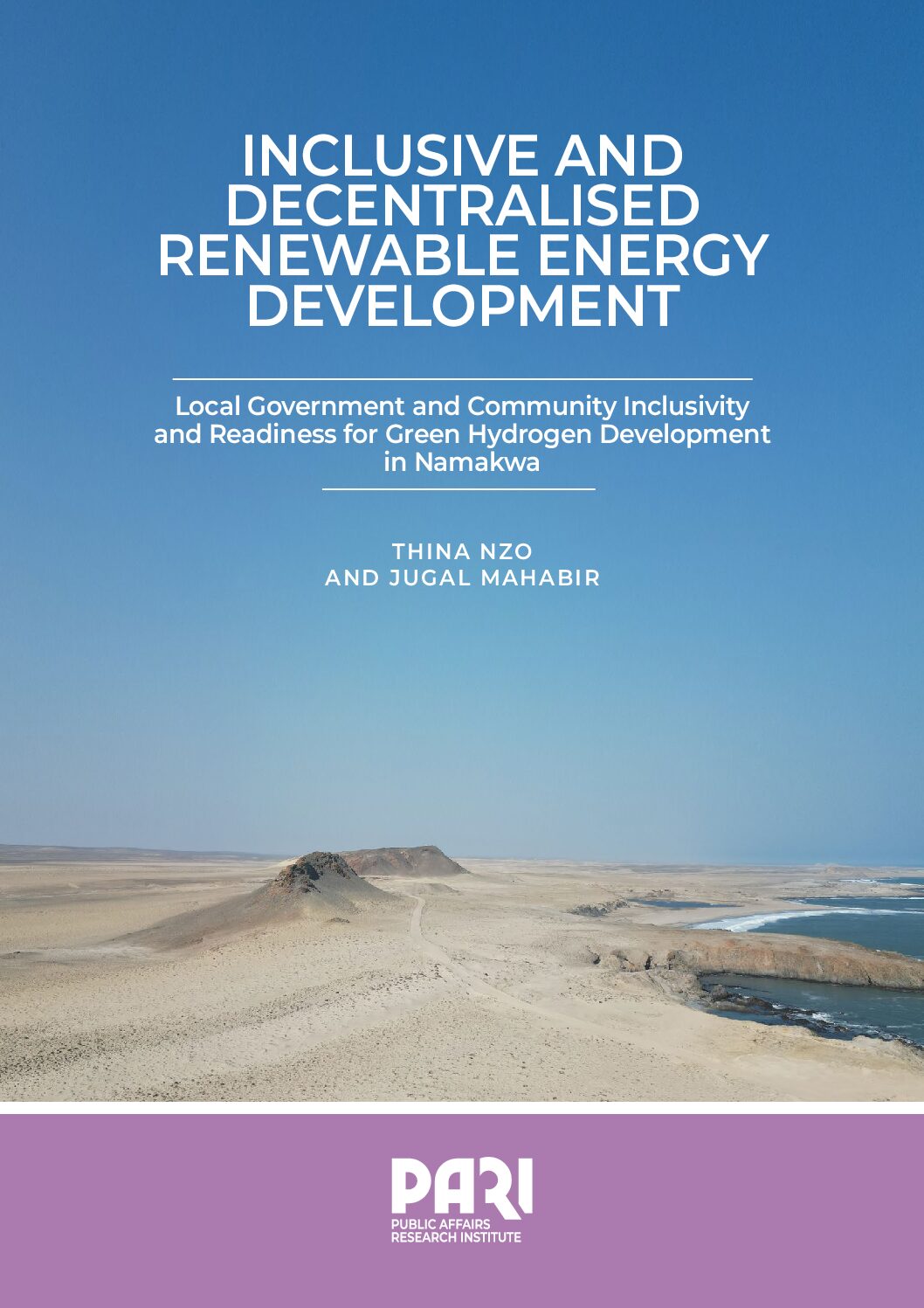A report by Thina Nzo and Jugal Mahabir.
The main objective of this research is to provide a critical assessment of the principle of inclusion and the readiness of host municipalities in the implementation of nationally driven renewable energy initiatives towards South Africa’s just energy transition, using the proposed green hydrogen development initiative in Boegoebaai as a case study. This will entail a critical assessment of whether municipalities — in particular rural municipalities such as Namakwa DM and the Richtersveld LM earmarked to host the green hydrogen development — are appropriately capacitated to play a meaningful role in the coordination and implementation of large-scale renewable energy industrial developments.
The main research questions asked in this research are:
1. What is the state of municipal infrastructure, local economy, institutional capacity and fiscal capacity of Namakwa DM and Richtersveld LM to assess its readiness for the coordinated and successful implementation of the green hydrogen project?
2. What support is the national and provincial government providing to Namakwa DM in preparation for the green hydrogen industrial development to show inclusivity and IGR collaboration towards the initiative?
3. How is local and provincial government initiating community engagement and consultation on the green hydrogen development towards a just and equitable benefit of this initiative?
The null hypothesis of the assessment is: if 1) the Richtersveld LM and the Namakwa DM are not appropriately capacitated, 2) not supported by national and provincial governments and 3) local communities have not been consulted to hear and address their issues, then one can conclude that the implementation of these large renewable energy projects can lead to an energy transition that is not inclusive and therefore an unjust transition.



